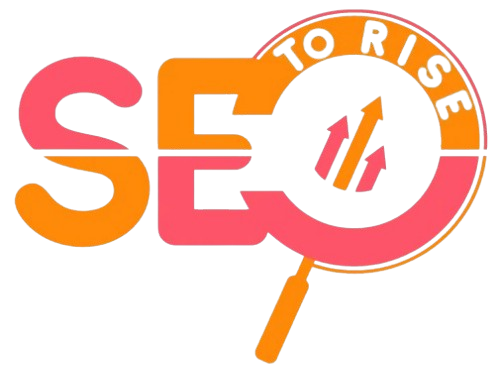Welcome to our “White Label Link Building” the ultimate guide useful for those who are looking to learn suitable and proven linking building methods. In this guide, you can expect to learn:
- White Label Link Building Concept
- Roles and Benefits Of White Label Link Building
- Criteria To Choose Link Building Firm
- and much more
Table of Contents
Basics Of White Label Link Building
What is White Label Link Building?
White label link building is a digital marketing practice where agencies offer link building services to other agencies or individual clients without branding. Essentially, it’s like buying a generic product and slapping your label on it. This service allows marketing and SEO Companies to provide link building to their clients as if they were doing the work themselves, even if they lack the resources or expertise. It’s a win-win: clients get quality backlinks to improve their website’s SEO, and agencies can offer a broader range of services.

Explanation of White Label Backlink Services
White label SEO backlinks services are provided by specialized SEO firms. These services focus on acquiring high-quality backlinks from reputable websites within your industry. The process involves content creation, outreach, and placement of links in a manner that appears organic and natural. These services are ‘white label’ because the end client never knows that an external agency was involved in the process. Instead, the credit goes to the agency that outsourced the work, allowing them to maintain client relationships seamlessly.
How White Label Link Building Works
The process of white label link building involves several steps:
- Identification of Targets: The first step is identifying high-quality websites relevant to the client’s industry for potential backlinks.
- Content Creation: Next, create valuable and relevant content that can be used to secure these backlinks. This might involve writing articles, blogs, or creating infographics.
- Outreach: Then comes outreach, where the agency contacts website owners or editors to negotiate the placement of content or backlinks.
- Reporting: Finally, the white label provider produces reports detailing the backlinks acquired, which the client agency presents to its customers as its work.
This entire process is done under the branding of the client agency, not the white label service provider.
#4 Main White Label Link Building Role
White label link building plays a crucial role in SEO strategies for several reasons:
- Quality Backlinks: It focuses on acquiring high-quality backlinks, which are a major ranking factor for search engines. The better the backlinks, the more likely a website is to rank higher in search engine results pages (SERPs).
- Scalability: It offers scalability to marketing agencies, allowing them to take on more clients or larger projects without being limited by their in-house resources.
- Efficiency: By outsourcing to experts, agencies can ensure that the link building process is more efficient and effective, leading to better results for their clients in a shorter timeframe.
- Competitive Edge: Providing comprehensive SEO services, including advanced link building, gives agencies a competitive edge in the market. They can offer more value to their clients, which can help in retention and acquisition.
Top #8 White Label Link Building Benefits
White label link building offers a suite of advantages for agencies aiming to scale their operations and enhance their service offerings. From cost-effectiveness to improved search engine rankings, the benefits are broad and impactful.
Cost-Effectiveness and Scalability
One of the primary benefits of partnering with a white label link building agency is the cost savings compared to building an in-house team. It eliminates the need for extensive recruitment, training, and retention costs. Scalability is another major advantage. Agencies can easily adjust their service capacity based on client demand without the constraints of their internal resources.
Expertise and Quality of Service
White label link building agencies specialize in SEO and have a team of experts who are up-to-date with the latest strategies and search engine algorithms. This expertise ensures high-quality service and effective link building strategies that would be hard to replicate with a generalist in-house team.
Time Savings and Efficiency
Outsourcing link building to a white label agency saves considerable time. Agencies no longer need to manage the time-consuming tasks of outreach, negotiation, and content creation for backlinks. This efficiency allows agencies to focus on core business activities and client management, optimizing their operations and maximizing productivity.
Branding and Customization Opportunities
White label services are designed to be rebranded, offering agencies the opportunity to present the link building services as their own. This ability to customize reports and communications under the agency’s brand enhances their market presence and helps in building a stronger brand identity.
Improved Search Engine Rankings
A direct benefit of effective link building is improved search engine rankings. High-quality backlinks are a key factor in how search engines rank websites. By increasing the number and quality of backlinks to a client’s website, white label agencies contribute significantly to improving their visibility and rankings on search engine results pages (SERPs).
Increased Organic Traffic
With improved rankings comes increased visibility, which naturally leads to an increase in organic traffic to the client’s website. More traffic not only supports direct business objectives but also increases opportunities for conversion, further justifying the investment in white label link building services.

Enhanced Domain Authority and Credibility
High-quality backlinks from reputable sites enhance a website’s domain authority, which is a measure of its credibility and reliability. A higher domain authority strengthens a website’s standing in its industry, making it more likely to appear in search results and attract quality traffic.
Client Retention and Satisfaction
Finally, the comprehensive benefits provided by white label link building services lead to higher client retention and satisfaction rates. Satisfied clients are more likely to continue their partnership and explore additional services, providing a stable revenue base and opportunities for growth
.

Criteria For White Label Link Building Specialist
Choosing the right white label link building specialist is pivotal to your SEO success. Here’s a guide to make an informed decision:
- Experience and Track Record: Prioritize specialists with a proven track record in your niche. Experience speaks volumes about their capability to navigate the complexities of SEO and deliver results. Ask for case studies or references to gauge their success stories.
- Transparency and Reporting: Opt for a partner that values transparency in their operations. Regular and detailed reporting keeps you in the loop about your link building efforts and progress. Ensure they can provide comprehensive reports that include link placements, the quality of the links, and the impact on your SEO performance.
- Quality of Links and Content: The quality of links is crucial for SEO success. A good specialist focuses on acquiring backlinks from reputable, high-authority websites relevant to your industry. They should also ensure that the content associated with these links is high-quality, engaging, and relevant.
- Pricing and Packages: Look for flexible pricing and packages that cater to your specific needs and budget. Avoid one-size-fits-all solutions; instead, seek customizable options that allow you to scale up or down based on your SEO objectives and financial capacity.
- Their Link Building Approach: Inquire about their link building strategies to ensure they align with white hat SEO practices. Ethical, sustainable tactics not only boost your SEO but also protect your website from penalties associated with black hat techniques.
Collaboration and Expertise
A collaborative approach can significantly enhance the effectiveness of your link building efforts. Choose a specialist who is willing to work closely with your team, understands your business goals, and can contribute expertise to refine your overall SEO strategy.
Red Flags to Avoid in Potential Partners
- Guaranteed Rankings: Be wary of specialists promising guaranteed rankings within a short period. SEO is a long-term game, and such promises can often be misleading and unrealistic.
- Opaque Strategies: Avoid partners who are not transparent about their link building strategies. Lack of clarity can indicate reliance on questionable tactics that might harm your SEO.
- Low-Quality Links: Steer clear of services that offer a high quantity of links at suspiciously low prices. Such links are often low-quality and can negatively impact your SEO efforts.
- Lack of Communication: Effective communication is key to any successful partnership. Lack of timely updates or responses is a red flag indicating a potential lack of commitment or resources.
#4 Strategies for Effective White Label Link Building
1. Content Creation and Promotion
Creating high-quality, engaging content is the cornerstone of successful link building. Content that provides value, solves problems, or entertains is more likely to be shared and linked to by others. Once you have compelling content, promote it across various platforms — social media, forums, and email newsletters — to gain visibility. Collaborating with influencers or industry leaders to share your content can also boost its reach and the potential for link generation.
2. Guest Posting
Guest posting involves writing and publishing articles on other websites or blogs within your industry. This strategy not only helps in building backlinks but also in establishing your brand’s authority and reaching a broader audience. When choosing sites for guest posting, prioritize those with high domain authority and relevance to your niche. Always strive to provide unique, valuable content that complements the host website while subtly incorporating links back to your own site.
3. Broken Link Building
Broken link building is a technique where you identify broken links on other websites and suggest replacing them with a link to relevant content on your own site. This method is beneficial for both parties; it helps the website owner fix dead links, improving their user experience, and allows you to gain a backlink. Use tools to find broken links in your niche, then reach out to the website owners with a polite proposal to substitute the broken link with your own.
4. Niche Edits and Link Insertions
Niche edits, or link insertions, involve adding your link to an existing article rather than creating new content. This strategy can be particularly effective since the content is already indexed and possibly ranking in search engines. Reach out to website owners or bloggers with content relevant to your niche and suggest adding a link to your site that adds value to their piece. Always ensure that the link insertion feels natural and enhances the article’s value to its readers.
White Label Link Building Tools
The backbone of successful white label link building lies in leveraging the right set of tools and technologies. These resources not only streamline the process but also enable SEO experts to achieve better results for their clients. Below, we explore some of the key components essential for this endeavor.
Software for Link Analysis and Tracking
Link analysis software is the first port of call for any SEO professional looking to embark on a white label link building campaign. This software provides invaluable insights into the quality, quantity, and relevance of backlinks pointing to a website. By evaluating these metrics, SEO experts can devise strategies to improve a site’s link profile, focusing on acquiring high-quality links from reputable sources. Popular link analysis tools include:
- Ahrefs: Offers comprehensive link analysis, allowing users to inspect the strength and value of backlinks, track their growth over time, and identify opportunities for acquiring new links.
- Majestic: Renowned for its extensive link index, Majestic provides detailed reports on a site’s backlink profile, including metrics such as citation flow and trust flow.
- SEMrush: A versatile tool that not only analyzes backlinks but also offers insights into competitors’ link building strategies, helping users find new link opportunities.
CRM Tools for Managing Link Building Campaigns
Customer Relationship Management (CRM) tools play a pivotal role in managing and optimizing link building campaigns. These tools help SEO professionals organize outreach efforts, track communications with potential link partners, and monitor the progress of ongoing campaigns. Effective use of a CRM tool can significantly increase the efficiency and success rate of link building activities. Notable CRM tools for link building include:
- BuzzStream: A dedicated tool for link building and outreach that helps users research influencers, manage email communications, and track the status of each link building effort.
- HubSpot: While primarily a marketing platform, HubSpot offers robust CRM capabilities that can be adapted for link building, providing features for email tracking, scheduling, and task management.
AI and Automation in Link Building
The integration of Artificial Intelligence (AI) and automation technologies has revolutionized the way link building campaigns are conducted. These innovations enable SEO professionals to automate mundane tasks, such as link prospecting and email outreach, freeing up time to focus on strategy and relationship building. AI algorithms can also predict the potential success of link opportunities, helping users prioritize their efforts for maximum impact. Tools incorporating AI and automation include:
- Pitchbox: An outreach platform that automates the process of finding influencers and conducting email outreach, with features for personalizing messages at scale and tracking responses.
- Linkody: Automates the monitoring of backlinks, alerting users to new links, lost links, and changes in link value, ensuring that a site’s link profile remains strong.
White Label Link Building Best Practices
Focusing on Quality Over Quantity
The golden rule of effective link building is prioritizing the quality of links over their quantity. High-quality backlinks from reputable, high-authority websites not only boost your website’s SEO ranking but also enhance your site’s credibility and trustworthiness. Instead of aiming for a large number of backlinks, concentrate on securing a few, but impactful links that align with your client’s niche and audience.
Ensuring Link Relevance and Authority
Relevance and authority are the cornerstones of successful link building. When scouting for potential linking opportunities, aim for websites that are not only authoritative but also relevant to your client’s industry or niche. Links from such websites signal to search engines that your client’s content is valuable, thereby improving its search rankings. Utilize tools like Moz’s Domain Authority or Ahrefs’ Domain Rating to gauge a site’s influence.
Avoiding Black Hat SEO Tactics
Steer clear of black hat SEO tactics, which are unethical practices designed to manipulate search engine rankings. These include buying links, spamming links on unrelated websites, and using invisible text or keyword stuffing. Such practices can lead to severe penalties from search engines, including being blacklisted. Embrace white hat SEO strategies that focus on creating valuable content and building relationships with authoritative websites for sustainable SEO success.
Maintaining Transparency with Clients
Transparency is crucial in white label link building. Ensure that your clients are kept in the loop regarding the strategies employed and the progress of their link-building campaigns. Providing regular, detailed reports that include the links acquired, their source, and the impact on SEO performance fosters trust and reassures clients that their investment is yielding results. This open communication not only strengthens client relationships but also allows for collaborative strategy adjustments to enhance campaign effectiveness.
The Future of SEO Link Building Agency
The future of SEO link building agencies looks promising, with a clear shift towards more strategic, quality-focused approaches. The era of spammy, quantity-over-quality link acquisition is fading, giving way to more meaningful, content-driven strategies. Agencies specializing in white label link building are increasingly leveraging advanced analytics and AI to identify the best opportunities for their clients, ensuring that each link adds real value.
Trends and Predictions for Link Building
- Quality Over Quantity: The emphasis on high-quality, relevant links will continue to rise. Search engines are becoming smarter at identifying and valuing links that are genuinely useful to users, making it crucial for link building efforts to focus on quality.
- Increased Use of AI and Machine Learning: Tools powered by AI and machine learning are becoming more prevalent, helping agencies to streamline the link building process, from identifying prospects to measuring the impact of links.
- Greater Emphasis on Content: The link-worthy content will remain king. Engaging, informative, and unique content attracts natural links and is favored by algorithms. Agencies will need to invest more in content creation and marketing strategies.
- Rise of Niche Influencers: Collaborating with influencers in specific niches will become a more popular strategy for obtaining high-quality backlinks, as these partnerships can drive targeted traffic and enhance the authority of a website.
The Evolving Landscape of SEO and Digital Marketing
The landscape of SEO and digital marketing is evolving rapidly, with a shift towards more integrated and user-focused strategies. The rise of voice search, mobile-first indexing, and local SEO are just a few factors reshaping the playing field. Agencies must adopt a holistic approach, considering how various elements of digital marketing, from social media to content marketing, contribute to their overall link building and SEO strategies.
How Agencies Can Stay Ahead in White Label Services
- Embrace Technological Innovations: Staying ahead in white label link building requires agencies to embrace new technologies. This includes everything from AI-driven analytics tools to software that streamlines project management and communication with clients.
- Focus on Transparency and Communication: Clients value transparency. Agencies should ensure that they communicate their strategies, progress, and results clearly and regularly, building trust and long-term relationships.
- Diversify Strategies: Don’t put all your eggs in one basket. A diversified approach that includes a mix of link building tactics, from guest blogging to digital PR, can help agencies provide more value to their clients.
- Continuous Learning and Adaptation: The digital landscape is always changing. Agencies that invest in ongoing learning and adapt to new SEO best practices, algorithm updates, and market trends are more likely to succeed.
- Build a Quality Network: Establishing relationships with reputable publishers, influencers, and content creators can give agencies an edge in acquiring high-quality links for their clients.
White Label Link Building Challenges
White label link building is a powerful strategy for SEO success, enabling businesses to offer link building as a service under their brand without having to do the groundwork themselves. However, it comes with its own set of challenges and considerations that need to be addressed for it to be truly effective.
Navigating SEO Algorithm Updates
Search engines like Google frequently update their algorithms, which can significantly impact the effectiveness of existing link-building strategies. Staying ahead of these changes is crucial. SEO professionals must be agile, constantly educating themselves on the latest updates and adjusting their strategies accordingly. This means investing time in ongoing learning and sometimes, rapidly changing tactics to ensure the links continue to improve, rather than harm, a site’s ranking.

Ensuring Link Quality and Relevance
The quality and relevance of the links built are paramount. High-quality links from reputable, relevant sources drive the most value for SEO. However, securing these links is challenging and requires a deep understanding of both the client’s industry and the current SEO landscape. White label providers must rigorously vet potential linking sites for authority and relevance, ensuring they align with the client’s niche and SEO goals. This vetting process is time-consuming but essential for the success of the campaign.
Managing Client Expectations and Deliverables
Clients often have high expectations for the results of link-building campaigns, and managing these expectations is a delicate balance. It’s important to set realistic goals and transparently communicate the timelines and potential fluctuations in rankings. SEO is a long-term strategy, and significant results can take time. Additionally, deliverables should be clearly defined from the outset. This includes specifying the number and type of links, reporting frequencies, and any additional services included. By setting clear expectations and delivering consistent communication, businesses can build trust with their clients and navigate the complexities of white label link building more effectively.
Conclusion
I hope you enjoyed our guidebook. Let us know about your point of view in the comment below.











